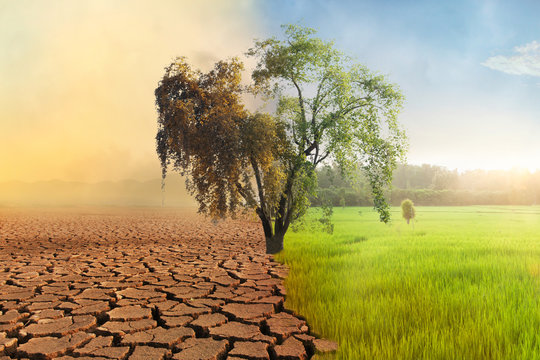The planet Earth is the only home of humankind. While humans have been responsible for the effective use of its abundant resources it is equally responsible for emissions of multiple greenhouse gases that have begun to warm the earth by enveloping it with a thicker layer of atmosphere. Climate change has become imminent, therefore. The entire world is now concerned about lessening the impact substantially to decrease or delay global warming which has become prominent in various parts of the globe. Methane gas reduction is believed to be an important task that you need to heed.
True, you have been more concerned about carbon dioxide and have completely overlooked the presence of methane gas which is equally dangerous for all living creatures. You must learn about other gases that add to the greenhouse effect too. The gases that you have to be most careful about accumulating in the atmosphere include the following:-
- Carbon dioxide (CO2)
- Methane (CH4)
- Nitrous oxide (N2O)
- Fluorinated gases such as Hydrofluorocarbon, per-fluorocarbons, sulfur hexafluoride, and nitrogen trifluoride
Why is Methane gas reduction essential?
Sure, carbon dioxide is the most dangerous gas that impacts the environment adversely but methane is no less dangerous either. Methane has been known to contribute to global warming too and needs to be reduced from all possible sources of emission. Some of the most vital reasons to reduce methane gas emissions at the earliest are:-
- Lower Global Warming Rate– The extent of Methane emissions from fossil fuels, waste, and agriculture must be reduced by at least 45% without spending too much. The target set by the Paris Agreement is estimated to restrict global warming to 1.5 degrees C by the year 2045. However, the procedure must begin by 2030 to achieve this target.
- Less Impact on Human Health & Growth of Crops– While methane is responsible for global warming, it also forms ozone at the ground level. This severely impacts the health of individuals, affects the economy adversely, and reduces crop development substantially. Successfully reducing the emission of methane gas is sure to prevent the following by the year 2040:
- 2,55,000 premature deaths
- 7,75,000 asthma-related hospital visits
- 26 million tonnes of crop losses across the world
- 73 billion hours of lost labor from extreme temperatures
- Decrease of Methane Emissions by Humans– It is the onus of every individual to make an effort to reduce methane emissions as much as possible. Thankfully, the cost can be controlled with the aid of specialized equipment that may be employed with success. The following measures have been successful in reducing methane emissions to a great degree:
- Recovery and use of vented gas, more control of accidental emissions during the production of oil and natural gas
- Pre-mining degasification, flooding abandoned coal mines
- Proper solid waste management
- Intermittent flooding and draining, direct wet seeding, and use of hybrid species in agriculture
- Feed changes and supplements, selective breeding to improve productivity and animal health plus fertility
- Use of renewable energy for power generation, improved energy efficiency
- Less food loss and waste
- Lower consumption of red meat and dairy
Methane gas reduction is the need of the hour. Ignoring this need or putting it off can spell disaster for the future.




